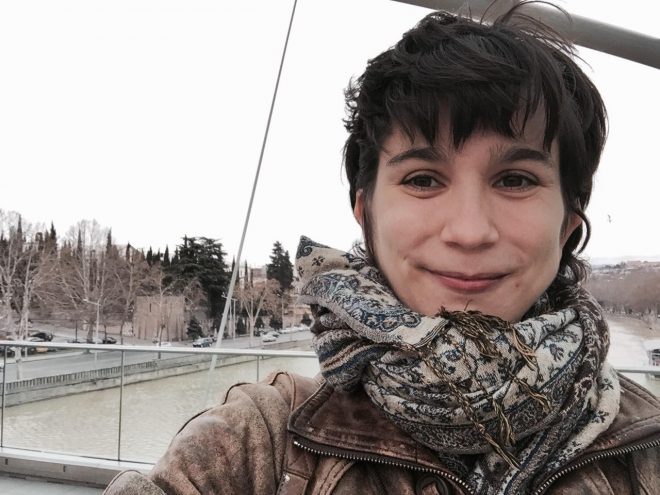Why #ChangeTheDate Is A Campaign White Australians Need To Listen To
As white Australians, recognising our history is the absolute least we can do.

This week Junkee is publishing a series, produced by young Australian writers, called “This Is Why I Don’t Celebrate Australia Day”.
–
Let me begin by saying that I am not Indigenous. There are countless amazing Indigenous activists who have laboured for years to further the conversation around Australia Day, who have explained countless times, in words far truer and more eloquent than mine, the reasons behind their diverse views. It is crucial that these voices are elevated because a huge, ugly chunk of this issue is about our continuing failure to listen to Indigenous voices.
As I am not Indigenous, all I can offer is my own perspective on why this debate is not ‘just’ a fringe issue and how it concerns all of us, no matter where we come from. I am a second generation white Australian. Both my parents are Swiss immigrants and my entire extended family still lives in that strange, faraway land of jagged alps and luscious chocolate. I have lived in Sydney almost all my life. I went to school here and grew up here, I fell in love with the ocean and the city. Sydney is, in anyway that means anything, my home.
As a kid, January 26 was not a particularly significant day. Of course the date wasn’t formally declared a national holiday until 1994, when I was just a chubby toddler in Perth. As the day grew in exposure however, it became a day for my family to come together and feel grateful for being welcomed into this wonderful place. Switzerland is a beautiful country too, and we were not forced to escape from anything sinister. Nonetheless, to me it was as alien as any other cold, dark, rainy place. January 26 was our day to say thank you for letting us be here, and grow here, and love here.
To me, this is such a fundamental part of what the day still means. A day for those of us who may so easily have found ourselves somewhere else to say thank you. And of course in that thanks we include our friends, teachers, communities, the infrastructure and institutions that allowed us to prosper. But besides and beyond all of this, we thank the First Peoples, to whom this land, the very foundation of everything else we are grateful for, belongs to. They are custodians, and they are also remarkable, valuable, varied members of our community, without whom our society would not function. Any thanks that excludes them is incomplete at best.

Talina Hürzeler
So the date must be changed. It must be changed because the day as it stands is exclusive. It does not unite us because celebrating the date of the arrival of the First Fleet specifically commemorates the beginning of a very dark period of our shared history. It marks the beginning of a vicious genocide – of massacres, stolen children, stolen wages, stolen land, beatings and illegal imprisonment. To ignore this history won’t make it go away, it will only serve to belittle the traumatic experiences of our Indigenous community, who suffered – and who continue to suffer – at our hands. As white Australians, recognising our history is the absolute least we can do.
The date must be changed because this abuse is ongoing. Indigenous incarceration rates are too high, life expectancy is too low, dispossession and colonialism continue as the government ignores Indigenous voices calling for treaty and persists with the Northern Territory Intervention. It is our responsibility, as white Australians, to change this because it is our actions, past and present, that have led to the current situation.
Finally, the date must be changed because it is easy. We can give thanks and drink beers on literally any other day of the year and a recent poll showed that in fact, the majority of us don’t actually care what date our national celebration is held on. We lose nothing by changing the date but it does begin to engage with the voices and demands of Indigenous Australians. If we, as white Australians, cannot even galvanise such a superficial change, this only signifies that we are still not ready to engage in a deeper, broader conversation of reconciliation, a conversation that is now more than 200 years overdue.
This is not just an ‘Indigenous issue’, it concerns every Australian. In the same way that sexual assault is often seen as exclusively a women’s issue when it is men’s behaviour that must change, this is our problem and we must do our best to engage. We must listen to Indigenous voices, begin to make true amends, and dismantle systems that perpetuate injustice.
If we want to be united, we need to put in the work. Changing the date is only the beginning.
–
Talina Hürzeler a writer, lawyer and activist who loves dumplings and doofing.
–
Feature image via Wikimedia Commons



